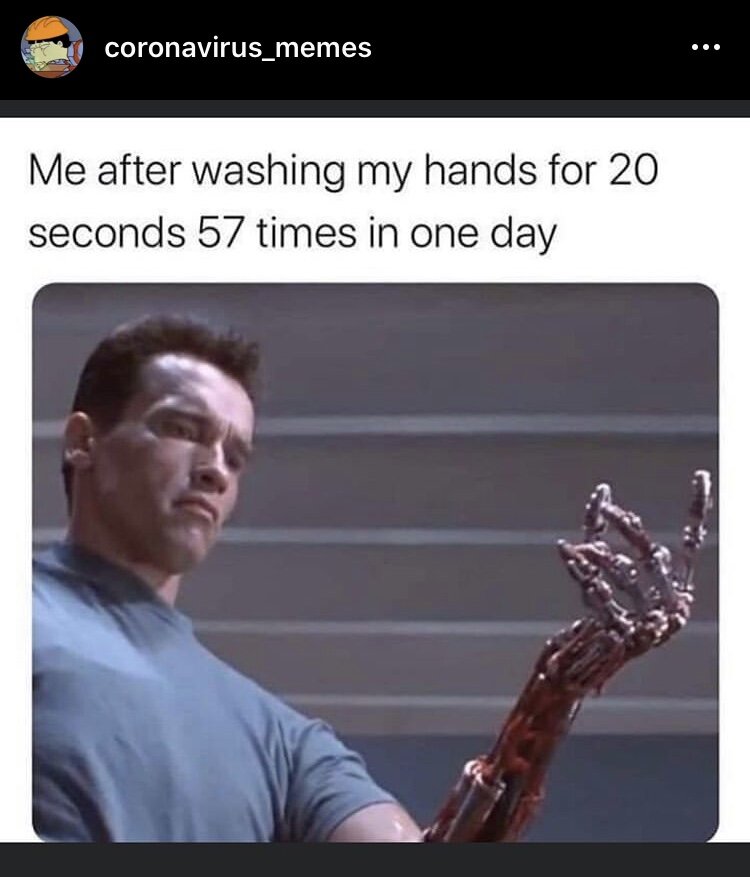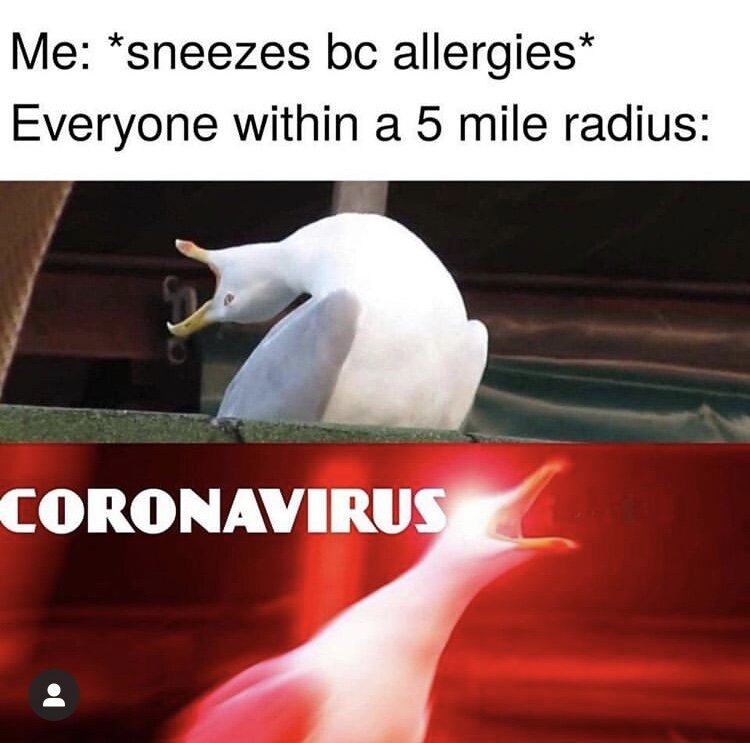By Rachael Whittemore
Since COVID-19 has preoccupied much of 2020 and is likely here to stay, we continue to try to do our part in mitigating its spread and keep ourselves healthy at the same time. Being part of a “high risk group” is scary, regardless of whether or not we are on immunosuppressant medication. We’re also trying to continue work, school or salvage some of our normal routine before social distancing and wearing masks in public became the new normal. I thought I would share part of my experience during the pandemic - back in April, in the midst of trying to do everything right, take care of myself, and be responsible, I found out that I’d had multiple exposures to someone who tested positive for COVID-19.
My heart sank a little bit and I became much more aware of the tiniest changes in how I felt. Was the tightness in my chest a sign of COVID-19 working its way into my lungs or just anxiety spiking? Was my terrible nasal congestion just worsening allergies with springtime in bloom or a sign of something more? You’ve probably seen plenty of funny memes circulating online that poke fun at moments when we need to sneeze or cough one time for something and then people within earshot of you give you death stares. They’re pretty funny, but when you know there’s a chance you could be infected or become infected, it hits you a little bit differently.
I was contacted by Virginia’s Department of Health and informed to stay where I was and self-isolate for 14 days. I had to take my temperature twice daily and record any symptoms on an online form. If I developed worrying symptoms, I had a number to call to determine if I qualified for testing. I was with my boyfriend, who had the same exposures I had, so it made me feel a little better; however, we were advised to largely avoid sharing spaces and each other as much as possible. It’s weird trying to keep distance from someone you’re staying with. What if your day has been rough and you just want a hug? In the time of COVID-19 isolation, you can’t do that. Being deprived of the comfort and connection we share with family members, friends and significant others is unsettling, especially for me. I’m a hugger, and I echo the sentiment that I won’t take another hug for granted once we get this thing under control.
So what did I do to prepare myself in case I got sick? I poured time into reading evidence-based resources about COVID-19. What we knew, what we didn’t. I was part of a Facebook group of medical providers from across the country that sought to share studies, experience, innovations and anecdotal evidence gained from treating COVID-19 patients. I looked at studies coming from elsewhere in the world about what treatments, if any, showed promise. A small part of me, thanks to my interests in medicine and public health, was wholly invested in how everything was unfolding. But most of me was trying to be as proactive as possible to keep my immune system up, avoid a flare and to stay above the rising waters of anxiety and dread in my mind.
I hydrated better than I had in weeks. I started taking a supplement with high dose Vitamin C and zinc every day in addition to my normal meds. I cooked (mostly) healthy meals and prioritized my diet and medication regimen so I could avoid any flares in case I got sick. I tried to prioritize sleep, but this was hard for me without my usual busy schedule and ability to run outside to have me feeling sleepy by the end of the day. I took Benadryl and, on my worst nights, one of my anti-anxiety medications that I usually save for days when I feel really out of control. Although I felt guilty about it, I tried to be gentle with myself and search for ways to set up a better sleep routine.
Fast forward a week: we were doing well and decided to go for a car ride since the weather was sunny and beautiful. We drove out on one my favorite country roads and marveled at the blossoming farms and apple orchards with the windows down. For some reason, I had started to feel nauseous and sweaty, sort of like when you might pass out. I don’t really get carsick, I thought. It didn’t smell the greatest since farmers were planting, but I usually didn’t react to bad smells either. We turned around, my boyfriend teasing me about being carsick but soon realizing I truly felt terrible. I laid down at home and hoped this “episode” would pass, yet I didn’t feel any better. For the next several days, I had waves of nausea, diarrhea, little appetite, dizzy episodes, chills, photophobia and some pretty intense migraine-type headaches. No to mention fatigue that prompted me to call for possible testing. I hadn’t had any fevers but knew something wasn’t right. My ulcerative colitis (UC) flares were never like this – I’d never had “dizzy spells” or felt so off. Even when my UC tired me out, I rarely would spend hours on the couch on a heating pad in one position, content to do nothing.
It was decided that I did need testing due to my symptoms and positive exposure. I felt lucky in this regard, because I know it hasn’t been easy for some in the US to get tested. Most are instructed to self-isolate and monitor symptoms and only seek treatment if they’re having trouble breathing. I also had had little to no respiratory symptoms. My nasal congestion had been worse, but I didn’t think much of it since my allergies were bad this time of year anyway. I had attributed some chest tightness to anxiety more than anything else. As I had been closely following developments at that time, I learned that COVID-19 could present with nausea, vomiting, diarrhea, loss of smell/taste, headaches, severe fatigue and other symptoms (1). Did I have COVID-19? It certainly seemed like a high possibility. My boyfriend, thankfully, was fine. I went to get tested at a drive-thru site nearby. After I got the not-so-fun, but necessary, long swab inserted into my nose and a sample taken from my nasopharynx, I was told to head home and to continue to self-isolate. I would have my results in 7-10 days.
How you get tested. Not fun!
A couple of days later, I finally had some appetite and felt like maybe it was a day I could get off the couch a little more. I got a call from my primary care provider: I was negative! I have to admit, I was relieved, surprised and also a little skeptical at the same time. As you may have heard, the testing methodology we have is not perfect and appears to have higher than desired false negative rates that can be attributed to various causes (1,2). RT-PCR (more about that here) may be the best widely-available testing we have, but many clinicians are relying on testing along with the clinical picture of the patient in front of them to determine how to proceed. Because of this, I acted like I had the virus, continuing to wear a mask once I completed quarantine and was allowed to go out (this was before mandatory masking inside was required in Virginia and North Carolina). I went out earlier or later, kept my distance from others and thoroughly washed my hands several times daily.
Thankfully, after 4 to 5 days, I finally started feeling like myself again. I felt like cooking and eating more than soup and applesauce. I wasn’t exhausted after taking a walk to the mailbox and back (with no one else around, of course). I still had some lingering loose stools for several days, but that finally improved too. I felt lucky that I didn’t flare on top of being sick, but made sure to be careful and ease back into my regular diet. I still worry about the possibility that my test could have been a false negative and I unknowingly infected someone else. Whatever I had, though, I made it through. Being sick during a global pandemic is hard. Trying to digest changing news and guidelines every week is hard. Hearing about exponentially rising cases and deaths is scary. Realizing that our world will never be the same after this is weird and scary.
Though I’ve been working through anxious thoughts during this time, I took time to slow down and be thankful. I wasn’t that sick. I had family and friends checking up on me. One of our friends brought us groceries. My boyfriend told me funny stories outside the bathroom while I was trying not to have diarrhea and throw up everywhere at the same time. I also was reminded to give my body time to heal. I’m used to being busy and balancing multiple things in my life at any given time. I have my normal life I’m used to living, even with the ups and downs of UC. I, like many others, probably don’t pause enough during the day to take a deep breath and remind myself of what I should truly be thankful for. If strict self-isolation has taught me one thing, it’s to stop and check in with yourself and on those you care about. While acknowledging that we are trying to navigate the storm that is a global pandemic, celebrate the little victories, even if you have to do it virtually.
IBD Resources in the time of COVID-19 - as always, discuss any questions with your GI provider*:
COVID-19 (Coronavirus): What IBD Patients Should Know
Coping with the stress and anxiety of coronavirus





